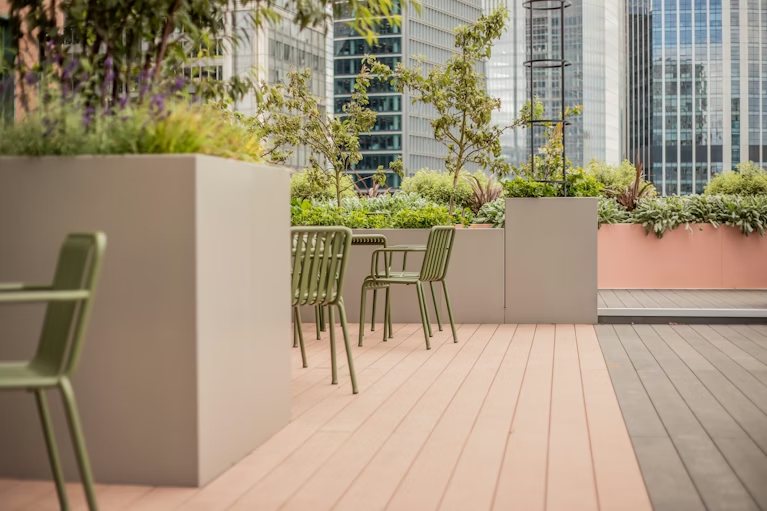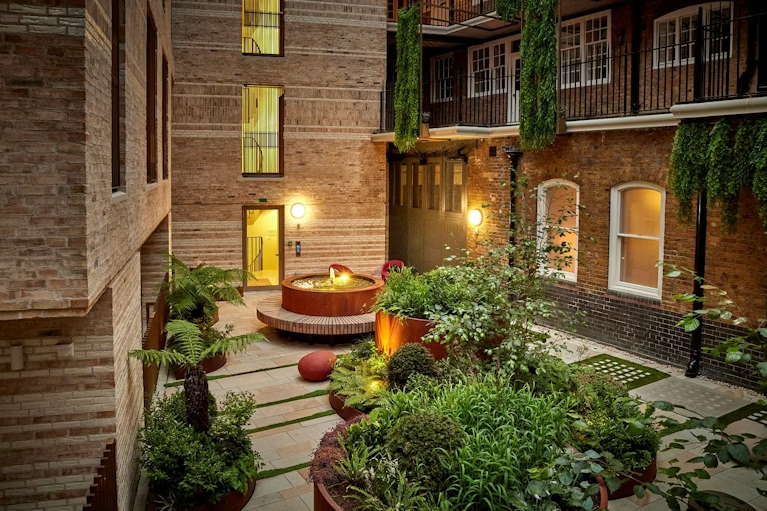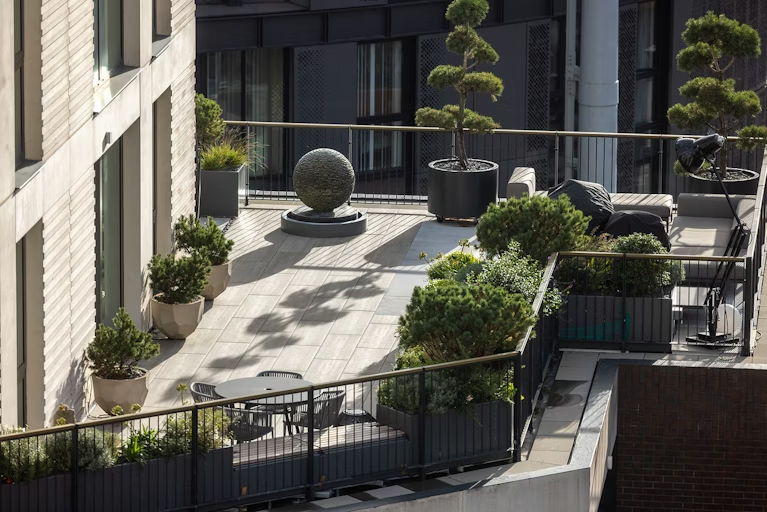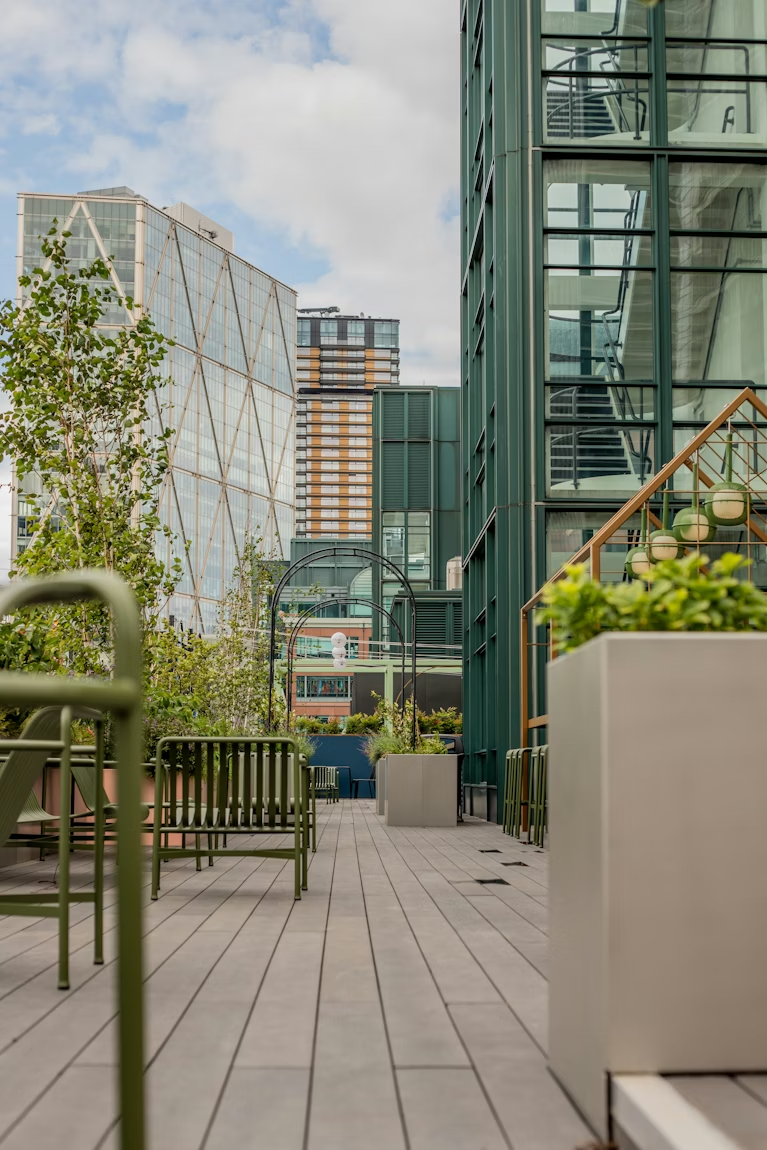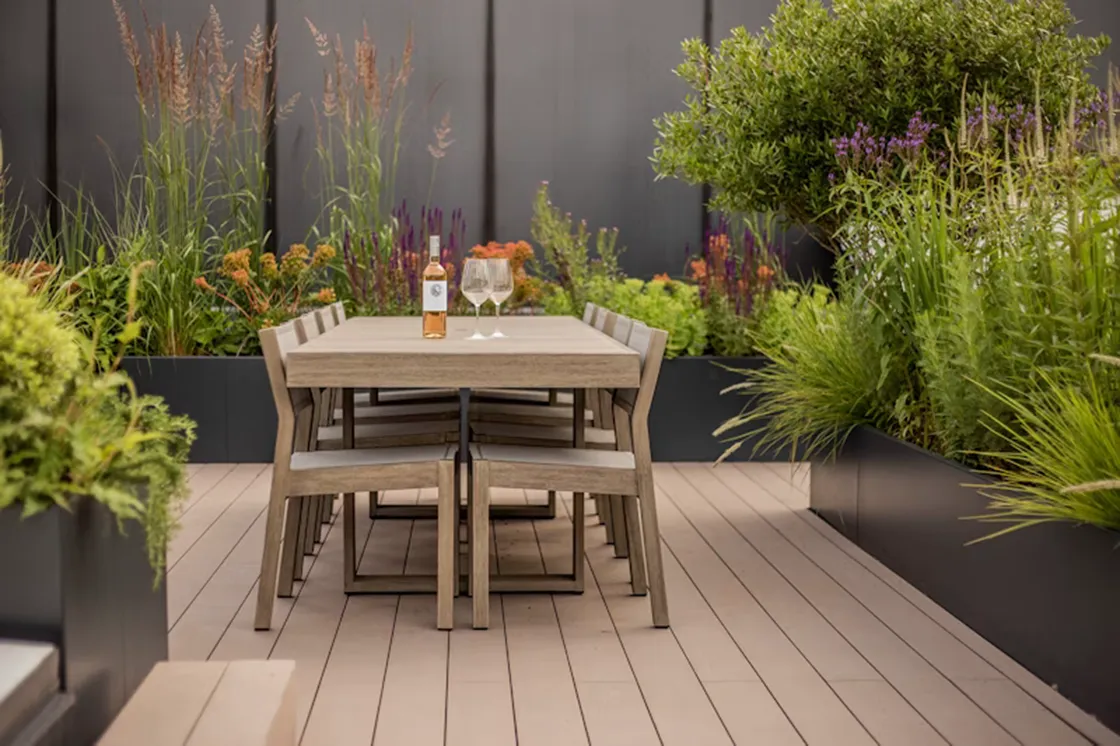Understanding slip resistance: Key rating systems explained
When specifying external flooring surfaces for commercial terraces and balconies, understanding slip resistance ratings is crucial to ensure safety and compliance with regulations. Different standards help architects, designers, and specifiers determine the appropriate flooring that minimises the risk of slips and falls.
One widely recognised standard is the DIN rating system, which is equivalent to British Standards and is accepted throughout the UK. DIN stands for Deutsches Institut für Normung, or the German Institute for Standardisation. This system is commonly referenced by floor designers and architects to comply with building regulations and to reduce liability from accident claims.
How the DIN Slip Resistance Test Works
The DIN test involves placing a ramp covered with the flooring material to be tested. This ramp is gradually raised at different angles while a person, wearing a specified shoe type or barefoot, walks on it. The test is repeated multiple times under different conditions, including dry, wet floors and floors contaminated with substances, to simulate real-world scenarios.
The angles at which slipping occurs are recorded, and an average score is calculated to assign an R rating. This rating reflects the flooring's ability to prevent slips on flat surfaces.
What the Ratings Mean
- R11: Our surfaces are rated to R11 which indicates a moderate to high level of slip resistance. This is suitable for areas with moderate to heavy foot traffic and where moisture may be present. Tiles with an R11 rating are ideal for external spaces like patios, roof terraces and decks.
R11 slip rated surfaces are:
- Suitable for various environments: R11 surfaces can be used in external spaces, making them versatile for various applications.
- Good grip in wet areas: The R11 rating provides a higher levels of slip resistance, even when the surface is wet. This makes them ideal for commercial terraces and balconies where weather conditions can cause the surfaces to be wet.
- Ideal for high-traffic areas: This slip resistance rating means they are suitable for areas with moderate to heavy foot traffic. Once again, making these surfaces perfect for commercial terraces.
A minimum Pendulum Test Value (SRV) of 45 is advised for sloped surfaces, ensuring adequate grip even when wet or contaminated.
By understanding and applying the R11 slip resistance rating, you can specify flooring that maintains safety for all users, particularly in high-traffic commercial outdoor areas exposed to weather and moisture.

